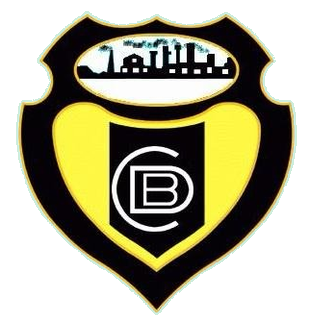Top Qs
Timeline
Chat
Perspective
CD Basconia
Association football club in Spain From Wikipedia, the free encyclopedia
Remove ads
Club Deportivo Basconia is a Spanish football club based in Basauri, Biscay, in the autonomous community of Basque Country. Founded on 14 March 1913, it currently plays in Segunda Federación – Group 2, holding home games at the Artunduaga Sports Centre, in the town of Basauri. Years ago, Basconia used to play in the Estadio López Cortázar, which was demolished in order to build new buildings.[citation needed]
In 1997, they entered into a partnership with Athletic Bilbao to serve as a feeder club for Bilbao and essentially operate as the club's C team.[3]
Remove ads
History
Summarize
Perspective
Founded in 1913 and named after a local iron and steel-working works (later owned by the Altos Hornos de Vizcaya company), Basconia reached the national third level (Tercera División) thirty years later. The club played in the second tier for six seasons (1957–1963), but this was before the creation of the regionalised new third division in the 1970s.
In 1997, Basconia became Basque neighbours Athletic Bilbao's feeder club, not being eligible for promotion if the reserves, Bilbao Athletic, playing at the level above, do not attain the same goal. The primary function of the agreement is to aid the development of young players in a challenging environment while keeping them in the same group setting and tactical system under the close guidance of the parent club; a number of teenagers who spent one or two seasons at Basconia have become professionals at Athletic Bilbao, eventually playing in La Liga and UEFA competitions. In January 2020 it was confirmed that the partnership, due to expire that summer, had been renewed for another three years to 2023.[4]
Basconia's place in Athletic's club structure means that the squad changes greatly each season. About half of the players move up to play for Bilbao Athletic, or go out on loan to other local clubs playing at Segunda Federación level. They are replaced by graduates, usually 17 or 18 years old, from the previous year's Juvenil A team. Typically the squad is expanded further with new signings from the region's youth clubs, the most notable of which are Danok Bat and Antiguoko.

Although Athletic Bilbao control the main squad's players and coaching personnel, Basconia retains its own club committee and staff and operates several youth teams as well as amateur side Basconia B who compete in the Preferente de Vizcaya league, two levels below the first team. These other teams play in a separate small stadium in the town, Soloarte. Occasionally the main squad has been supplemented by some of Basconia's 'own' players in emergencies – Mikel Rico was with Basconia B when he appeared in one Tercera División fixture in 2001;[5] he left Biscay for a long career across Spain which eventually brought him back to sign for Athletic in 2013.
In January 2018, with the team struggling to remain in the league, Basconia took the unusual step of recruiting some older, more experienced players including Thaylor Lubanzadio[6][7][8] to help them maintain their 23-year divisional status,[9] which was eventually accomplished – they finished 15th, 5 points above the relegation zone.[10]
Remove ads
Season to season
- As a separate club
- As a farm team
- 6 seasons in Segunda División
- 8 seasons in Segunda División B
- 1 season in Segunda Federación
- 55 seasons in Tercera División
- 4 seasons in Tercera Federación/Tercera División RFEF
Remove ads
Current squad
- As of 7 September 2025[11]
Note: Flags indicate national team as defined under FIFA eligibility rules; some limited exceptions apply. Players may hold more than one non-FIFA nationality.
Honours
Selected coaches
Notable players
Note: this list contains players who have appeared in at least 50 league games for the first team or have reached international status.
 Julen Agirrezabala
Julen Agirrezabala Yeray Álvarez
Yeray Álvarez Fernando Amorebieta
Fernando Amorebieta Daniel Aranzubia
Daniel Aranzubia José Argoitia[g]
José Argoitia[g] Joseba Arriaga
Joseba Arriaga Kepa Arrizabalaga
Kepa Arrizabalaga Beñat Etxebarria
Beñat Etxebarria Eneko Bóveda
Eneko Bóveda Javier Casas
Javier Casas Iñigo Córdoba
Iñigo Córdoba Koldo Etxeberria[g]
Koldo Etxeberria[g] Borja Ekiza
Borja Ekiza Unai Expósito
Unai Expósito Cristian Ganea[h]
Cristian Ganea[h] Unai Gómez
Unai Gómez Carlos Gurpegi
Carlos Gurpegi Iago Herrerín
Iago Herrerín Gorka Iraizoz
Gorka Iraizoz Andoni Iraola
Andoni Iraola José Ángel Iribar[g]
José Ángel Iribar[g] Ander Iturraspe
Ander Iturraspe Mikel Jauregizar
Mikel Jauregizar Aymeric Laporte
Aymeric Laporte Enrique Larrinaga[g]
Enrique Larrinaga[g] Iñigo Lekue
Iñigo Lekue Fernando Llorente
Fernando Llorente Unai López
Unai López Sabin Merino
Sabin Merino Unai Núñez
Unai Núñez Aitor Paredes
Aitor Paredes Beñat Prados
Beñat Prados Luis Prieto
Luis Prieto Iñigo Ruiz de Galarreta
Iñigo Ruiz de Galarreta Mikel Rico
Mikel Rico Unai Simón
Unai Simón Markel Susaeta
Markel Susaeta Ustaritz
Ustaritz Óscar Vales
Óscar Vales Asier Villalibre
Asier Villalibre Dani Vivian
Dani Vivian Iñaki Williams
Iñaki Williams Nico Williams
Nico Williams Francisco Yeste
Francisco Yeste
Remove ads
See also
- Athletic Bilbao (first team)
- Bilbao Athletic (B team)
Notes
- Won group in play-offs, but ineligible for promotion as Bilbao Athletic did not gain promotion from the level above (they too made the playoffs but finished third)
- While the club operated independently (pre-1997).
- Youth teams only.
Remove ads
References
External links
Wikiwand - on
Seamless Wikipedia browsing. On steroids.
Remove ads

